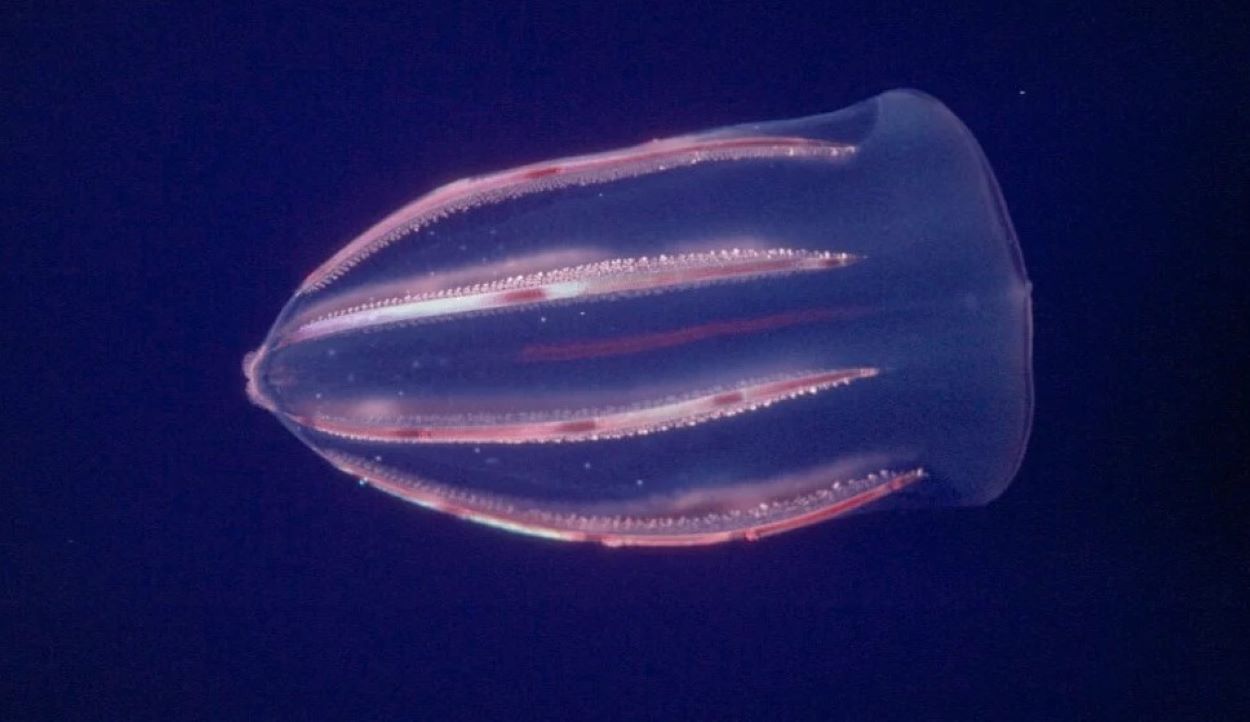In a groundbreaking discovery, researchers at the University of Bergen in Norway have identified the comb jellyfish (Mnemiopsis leidyi) as a potential candidate for biological immortality. Thanks to a newly discovered biological trait, this ctenophore species joins its cousin, the famous immortal jellyfish (Turritopsis dohrnii).
Scientists studying these creatures came across a larval ctenophore in a tank expected to contain a mature jellyfish. This unexpected finding, published in the Proceedings of the National Academy of Sciences, raises intriguing questions about the ability of other animals to reverse the aging process.
“The discovery of a new species with this ‘time-travel machine’ raises fascinating questions about how widespread this capacity might be across the animal kingdom”, said Joan J Soto-Angel, a study co-author, in a statement to Phys.org.
Soto-Angel and her team conducted experiments to replicate the conditions that caused the comb jellyfish to revert to its juvenile stage. They identified extreme stress as the trigger for this reversal.
Previous research suggests that comb jellyfish may have been the first animal species to appear on Earth around 700 million years ago. Their ability to reverse development could contribute to their potential for biological immortality.
Similar discoveries could help scientists explore ways to slow or even reverse the aging process in humans in the future.






